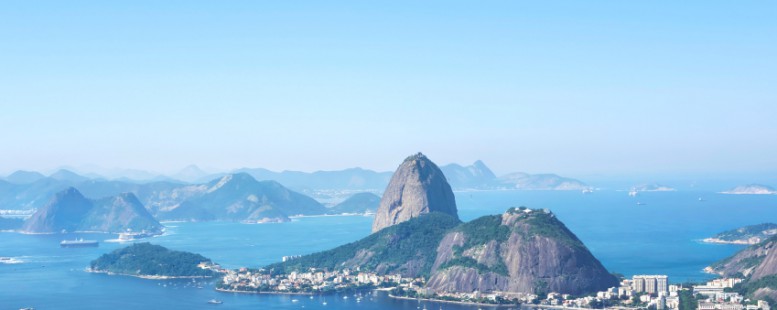Our Opinion: 2016
Brazil’s Olympian returns

The Olympics and Paralympics have put Brazil under the spotlight this summer. As well as the fantastic sporting action (with a special nod to Team GB), the country’s stock market proved a real champion.
Latin American markets, more broadly, surged ahead, reversing years of losses and are the cheapest of any emerging markets region. As the Olympics’s kicked off, Brazil’s Bovespa market was up 74% year to date, following last year’s 39% fall. MSCI Emerging Markets Latin America was up 43.9%.
The clear winner of all Latin American markets in 2016 is Brazil.
The Olympic Games could be a major boost to Brazil’s economy. But far more important has been the market’s reaction to the impeachment of president Dilma Roussef following a long-term corruption scandal, protests, and years of slow growth and high unemployment. And seismic political change across Latin America has been instrumental in driving recent stock market surges and is the central case for investing now.
Leftist governments in countries including Brazil, Venezuela and Argentina, who focused on spending and social programmes are crumbling. In their place are new regimes, determined to reduce spending, cut public debt and lure back foreign capital to their shores.
Jan Dehn, Head of Research at Ashmore Asset Management said “having been beaten up more than any other region during the headwinds of the past few years, Latin America now offers perhaps the most interesting investment proposition in the world. Institutions are improving, populist governments are giving way to more market-friendly administrations and asset prices are cheaper than elsewhere. Latin America will also see more a more extreme turnaround in growth than other regions over the next couple of years.”
Based on the rock-bottom estimates for Latin American company earnings growth and return on equity, it is possible that Latin American stocks will climb substantially higher.
But investing in the hope of political change is a risky game. Markets might already be overly optimistic and have rallied too far, considering how long any reform could take. Argentina’s stock market rallied 380% between the demise of Cristina Kirchner’s presidency in mid-2013 and the election of Mauricio Macri in 2015.
Jason Hollands, Managing Director at Tilney Bestinvest said “I think some of the exuberance has been overdone. Markets get excited about political shifts but there are still serious headwinds facing these economies due to built up financial problems and the exposure, particularly in Brazil’s case, to commodities.” An example is the 2013 Indian stock market rally following the election of reformist prime minister Narendra Modi. That was reversed two years later when his policies hit unexpected hurdles.
But Latin America still has a long road to real recovery. Brazil, which makes up over half of the MSCI Emerging Markets Latin America index, suffered its biggest gross domestic product (GDP) contraction in more than 20 years in 2015, when it shrank by 3.8%. Now, over 11% of its workforce is unemployed. In Argentina, meanwhile, president Macri has made strides but the country’s central bank has still been forced to hike short-term interest rates to above 35 per cent to rein in inflation. And Venezuela is mired in fresh turmoil over its leadership.
Our Discretionary Fund Managers are all looking at the best way to benefit from the potential Brazil, in particular, offers due to the Olympic effect of a boost in investment, tourism and trade. In the year since their games, the average stock market growth for the last six host countries was 25.4%. Only Sydney lost ground (falling 6.7%). Athens surged 45.1% following the 2004 games – ground that it was able to hold on to until its economic crisis.
The Olympics have given a spring-board to the region for higher infrastructure spend, tourism and income from television rights. Yet careful monitoring remains essential as Brazil’s problems continue to run deep.
12th September 2016
